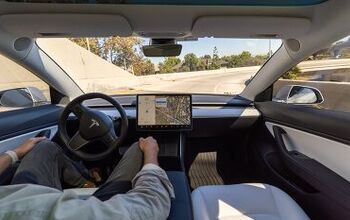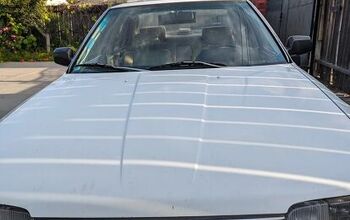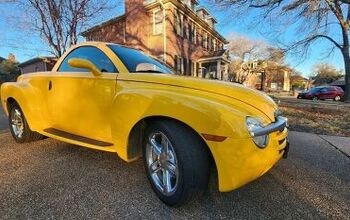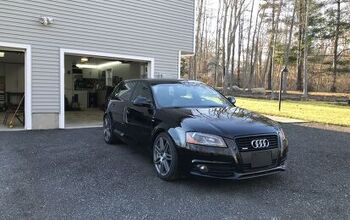Sedans and Missiles: Hyundai Slams Into Another Sales Roadblock

The frustration never seems to end for Hyundai executives. After last year’s Korean labor strife and political scandal, the brand now faces flagging fortunes in the all-important North American market, all thanks to a car-heavy lineup that once guaranteed piles of profit.
Now, the automaker faces the same problem in another global growth engine — China. While that market has also discovered its love for crossovers and SUVs, there’s another problem that Hyundai can’t turn around by rushing a new vehicle to production. Hyundai, it seems, can’t do a damn thing about high-altitude defensive missiles.
Already battered by the Chinese crossover craze — which has seen competitors like General Motors clean up — Hyundai has become a victim of geopolitics.
Anti-Korean sentiment is nothing new to China, but the growing distrust and boycotting of South Korean products — a practice tacitly encouraged by the country’s Communist government — has hit a new high. In response to the nuclear ambitions of North Korea, a key Chinese ally, the South is literally on the defensive. Recently, news emerged that South Korea plans to deploy a U.S.-supplied Terminal High Altitude Area Defense (THAAD) missile battery.
With the first pieces of the missile shield now in place, the system should be fully operational by the end of the year. China isn’t pleased.
According to Bloomberg, Hyundai showrooms in the largest Chinese cities are ghost towns. A manager in a Shanghai dealership told the news agency that weekends will go by without a single person entering the showroom, and that half of his sales staff have already quit.
Reuters reports Hyundai and Kia sales fell a staggering 52 percent in March, year-over-year, as the boycott ramped up. Market share has shrunk to just 3.5 percent. As the automaker counts on China for about a quarter of its overseas sales, the THAAD battery keeping its Seoul headquarters safe from nuclear annihilation won’t save it from that incoming blow. Still, the company persists.
Hyundai plans to offer seven new China-only vehicles, including a gas-powered and electric SUV, to lure Chinese buyers into showrooms. Doing its part, Kia also has a China-only SUV the way.
Beijing Hyundai Motor Company executive Chang Won-shin holds out hopes that anti-Korean sentiment will blow over, telling Bloomberg he expects the business climate to “get better soon.” The company is expected to drop its first-quarter financial report later today, with Kia’s results coming tomorrow.

More by Steph Willems
Latest Car Reviews
Read moreLatest Product Reviews
Read moreRecent Comments
- Aaron Recently cross shopped both cars. Decided to go with the civic sport. Like the non direct injection 2.0 engine (no long term carbon buildup) and preferred the Hondas transmission over the Toyotas. The civic interior seems much nicer and roomier. Also Honda had many more civics available to choose from vs Toyota. Got almost 2k off sticker. Felt it was the better deal overall. Toyota was not budging on price.
- FreedMike Not my favorite car design, but that blue color is outstanding.
- Lorenzo Car racing is dying, and with it my interest. Midget/micro racing was my last interest in car racing, and now sanctioning body bureaucrats are killing it off too. The more organized it is, the less interesting it becomes.
- Lorenzo Soon, the rental car lots will be filled with Kia's as far as the eye can see!
- Lorenzo You can't sell an old man's car to a young man, but you CAN sell a young man's car to an old man (pardon the sexism, it's not my quote).Solution: Young man styling, but old man amenities, hidden if necessary, like easier entry/exit (young men gradually turn into old men, and will appreciate them).


































Comments
Join the conversation
Something I wasn't aware of until recently: Russia also has a border with North Korea. "Vladimir Putin is sending troops and equipment to Russia's border with North Korea over fears the US is preparing to attack Kim Jong-un. The Russian President fears there will be a huge exodus of North Korean refugees if his American counterpart, Donald Trump, launches military action against Pyongyang." http://www.dailymail.co.uk/news/article-4428384/Putin-sends-troops-Russia-s-border-North-Korea.html
Politics & history . . -Nate